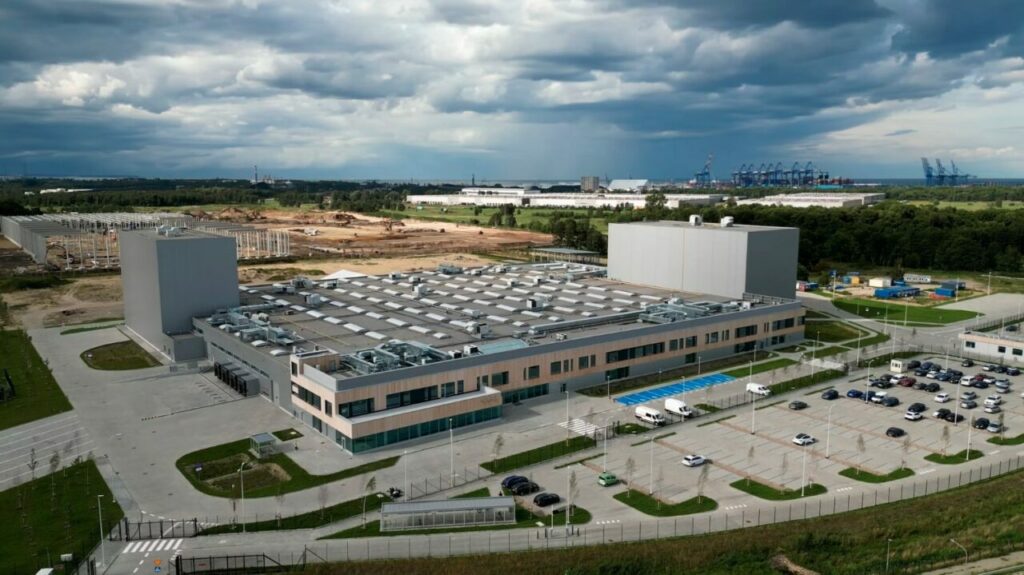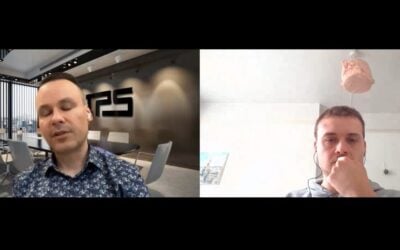
Northvolt intends to use its vertical European supply chain to differentiate itself in a ‘fiercely competitive’ energy storage market, executives said.
Energy-Storage.news caught up with the European lithium-ion gigafactory firm to discuss its energy storage system (ESS) manufacturing facility in Gdansk, Poland, and its work with Fluence with Energy-Storage.news while at the Energy Storage Summit Central Eastern Europe 2023 in the capital Warsaw.
Enjoy 12 months of exclusive analysis
- Regular insight and analysis of the industry’s biggest developments
- In-depth interviews with the industry’s leading figures
- Annual digital subscription to the PV Tech Power journal
- Discounts on Solar Media’s portfolio of events, in-person and virtual
Wilhelm Löwenhielm, senior director of ESS business development, explained that the Gdansk factory will producing battery products for the industrial solutions and ESS segment but won’t initially be producing full containerised ESS solutions. Its first ESS partner is Fluence, the world’s largest system integrator of battery energy storage system (BESS) solutions.
“With the Fluence co-operation we will deliver everything that goes inside the storage container. So everything except the enclosure. Fluence will integrate the modules we’ve provided into their ESS enclosure, in their own factories,” Löwenhielm said.
The factory obtained its use permit in May, produced its first products in August and expects to begin commercial deliveries later this year, Robert Chryc-Gawrychowski, CEO of Northvolt Poland said.
It will have an initial annual production capacity of 5GWh, rising to 12GWh in future, and builds on its battery cell production, battery material production and battery recycling facilities in Sweden and Norway.
It is the largest energy storage system (ESS) production facility in Europe, Northvolt claims, and makes the company “a very, very important part of this value chain with the integrated vertical setup” going across the battery value chain, Chryc-Gawrychowski said.
The facility’s first industrial customer meanwhile is Epiroc, the Swedish manufacturer of mining and infrastructure equipment, for which Northvolt is already supplying batteries for the electrification of its fleet.
Most of Northvolt’s lithium-ion production capacity overall will go to the comparatively larger automotive segment.
“With the Gdansk facility, we started in 2018 with the third-party cells for industrial battery systems but overall the goal is obviously to have our own cells only. We don’t want to be just another system integrator on the market,” Chryc-Gawrychowski said.
Expanding on this point, Löwenhielm explained how Northvolt wants to set itself apart from other ESS providers.
“In the ESS market there is fierce global competition, so you need to understand what your place in the market is,” he said.
“We want to be the company representing the world’s greenest ESS product to enable customers to stay true to their ESG commitments. You shouldn’t fight carbon with carbon. If we want to create true carbon abatement in our energy industry in Europe, we should also use products that are inherently green. To me those things go together.”
“We have a European value chain, and we want to be a European first company. So that’s what we’re bringing to the market that is new and what differentiates us.”
See all Energy-Storage.news’ previous coverage of Northvolt here.
This article was amended after publication to correct details relating to the ESS production facility.






